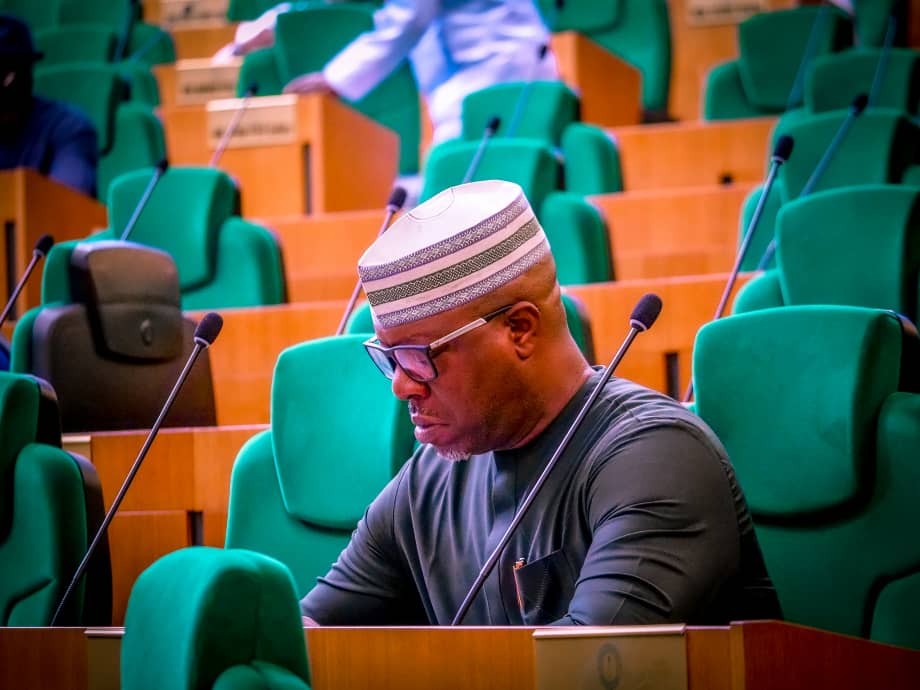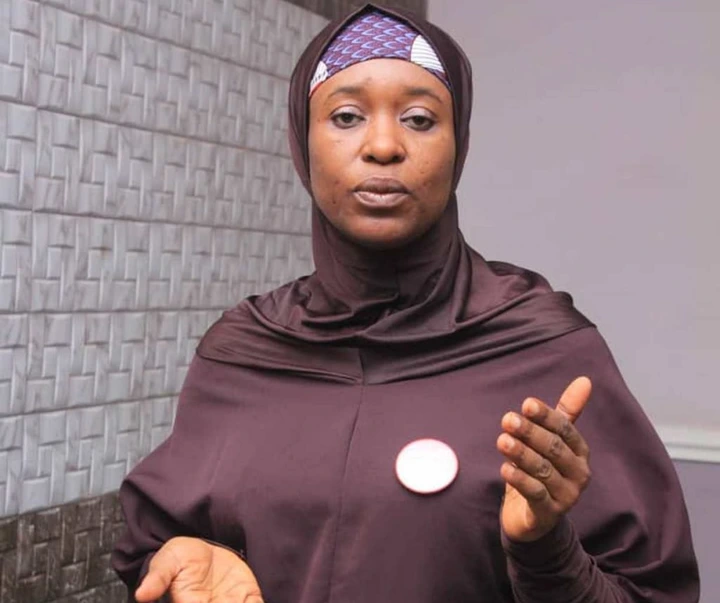News
China sees rapidly growing coffee market

By Wang Wenzheng
What would it be like when a post office turns into a coffee place?
In June this year, post provider China Post opened its first Post Coffee campus store in Southeast University, east China’s Jiangsu province. It soon became a photogenic spot for social media.
“The coffee’s great here, and so is the decoration,” said Li Wendong, a doctoral student of the university. He said the “crossover” cafe is interesting and students need such a place on campus where they can alleviate their pressure.
Post Coffee is only a miniature of “crossover” cafes. In China today, coffee shops are seen everywhere, such as gas stations, and even pharmacies. Many renowned enterprises have set foot in the coffee industry.
According to statistics, China is home to nearly 160,000 coffee-related enterprises, with an average of 20,000 emerging on an annual basis in the past five years. As of May 1 this year, a total of 117,300 coffee shops were operational across the country, and the number kept increasing despite impacts from COVID-19.
The involvement of renowned enterprises in the coffee industry mirrors the huge attractiveness of the Chinese coffee consumption market, which is like a tempting big cake.
Statistics indicate that the value of the Chinese coffee market was around 381.7 billion yuan ($56.53 billion) in 2021, and is expected to keep an annual growth of 20 percent in the next five years, which is way higher than the global average of 2 percent. The market value will be likely to hit 1 trillion yuan in 2025.
In recent years, coffee consumption has gradually grown into a habit among Chinese consumers. The group of coffee lovers with high consuming intention and brand loyalty is constantly expanding, represented by the middle- and high-income earners in urban areas.
Millennial Han Xiao is quite a fan of coffee who knows all the differences between coffee drinks, such as espresso, latte, mocha and cappuccino. For her, drinking coffee is not only for refreshing, but also a lifestyle.
“A coffee shop should be available within five minutes of walk from everywhere. Coffee shops are the ‘third space’ for me following home and office,” she said.
In addition, Chinese consumers’ demand for premium coffee products, such as fresh coffee, is rising rapidly as the group of middle-income earners expands.
Last year, China imported 122,700 tons of coffee beans, 74 percent more from a year ago. In particular, the import of raw coffee beans surged 87 percent to 106,000 tons, accounting for 86 percent of the total import.
Insiders estimate that China currently has a coffee consumer group of more than 300 million people.
Young consumers from both first-tier cities and lower-tier ones are shaping a consumption habit for fresh coffee. Many of them are fans of premium coffee beans and freshly-ground coffee, and want a fancy consumption environment. They even have purchased exquisite coffee ware and powerful coffee machines.
For instance, the sales of coffee machines on Tmall, an online retail platform under Chinese e-commerce giant Alibaba, recorded growth for six months in a row in the first half of this year. The highest year-on-year growth exceeded 200 percent.
Last year, the per capita consumption of fresh coffee among adult consumers in Chinese mainland stood at 1.6 cups, and the figure among young consumers in first- and second-tier cities was 3.8. The market enjoys a huge potential though there’s still a gap between itself and mature markets in the U.S. and Europe. Bright prospects await the emerging business as coffee products are seeping into the daily life of the Chinese people.
Defence/Security
Banditry: Rep member condemns attack on Kwara community

Stephen Olufemi Oni, Ilorin
The Member representing Ekiti/Isin/Irepodun/Oke-Ero Federal Constituency in the National Assembly, Hon. Raheem Tunji Olawuyi Ajuloopin, has strongly condemned the recent attack in Idofin Odo-Ashe, Oke-Ero Local Government Area of Kwara State, describing it as a cowardly act that seeks to disrupt the peace and stability of the community.
Hon. Ajuloopin, in a statement personally signed by him, expressed deep concern over the unfortunate incident and sympathised with the victims, their families, and the entire community affected by the dastardly attack, emphasising that acts of violence have no place in a civilised society, and therefore urged security agencies to intensify efforts in bringing the perpetrators to justice.
While commending the swift response of both the federal and Kwara State governments, as well as the security agencies and local vigilante groups, the lawmaker reiterated that the fight against insecurity requires collective responsibility, calling on traditional rulers, community leaders, and residents to remain vigilant and cooperate fully with security operatives by providing timely and credible information.
“Security is everyone’s business. We cannot afford to leave the safety of our communities solely to government agencies. Every citizen must be actively involved in safeguarding our environment and ensuring that peace prevails,” Hon. Ajuloopin admonished.
He reaffirmed his commitment to continued collaboration with relevant authorities to ensure that lasting peace in all parts of Kwara South and beyond.
Hon. Ajuloopin also appealed for calm, assuring that both the federal and state governments are working tirelessly to address the root causes of insecurity and prevent future occurrences.
End
News
Governor Namadi Attends High profile Ministerial Meeting On Self-Sufficiency In Cairo

From Hassan Taiye
Governor Umar Namadi is currently in Cairo,Arab Republic of Egypt, attending the Third High-Level Ministerial Meeting on Rice Self-Sufficiency, holding from October 7th to 9th, 2025, in Cairo and Sakha.
The meeting, themed “Towards Rice-Based Agri-Food Systems Transformation and Delivering on Rice Self-Sufficiency through Peer-to-Peer Learning: The Case of the Arab Republic of Egypt,” is jointly organized by the Egyptian Ministry of Agriculture and Land Reclamation, AfricaRice, the Arab Organization for Agricultural Development (AOAD), and other key continental partners.
This high-level gathering brings together African Ministers of Agriculture, State Governors, and agricultural leaders to share practical experiences on achieving rice self-sufficiency and agricultural transformation.
The event will showcase Egypt’s remarkable progress in achieving rice self-sufficiency despite its limited water and land resources, offering valuable lessons adaptable to other African contexts.
Namadi is participating alongside top policymakers, agricultural experts, and private sector players from across Africa to discuss innovations, policy reforms, and strategic investments aimed at strengthening food security and transforming the agricultural sector on the continent.
Over the three-day programme, delegates will engage in high-level ministerial sessions, technical discussions, and a field visit to Egypt’s renowned Rice Research and Training Centre (RRTC) in Sakha.
During the visit, participants will interact directly with Egyptian scientists and farmers to learn about the country’s advancements in high-yield rice varieties, efficient irrigation systems, and modern post-harvest technologies.
Jigawa State’s participation in this important forum underscores the state’s commitment to agricultural transformation, food self-sufficiency, and consolidating Jigawa’s position as one of Nigeria’s leading hubs for rice production and agribusiness development.
The meeting is expected to conclude with a Ministerial Declaration setting a continental roadmap for achieving rice self-sufficiency through collaborative research, policy coordination, and targeted investment across the rice value chain.
Governor Namadi is accompanied by senior officials from the Jigawa State Ministry of Agriculture and related agencies.
News
There’s Political Genocide Against Christians in Northern Nigeria – Aisha Yesufu

By: Fabian Apechihin
Sociopolitical activist Aisha Yesufu has accused Nigerian political leaders of perpetuating what she described as a “political genocide” against Christians in Northern Nigeria.
Yesufu made the remark on Tuesday in response to American comedian and TV host Bill Maher, who recently alleged that Nigerian Christians are facing coordinated attacks.
Maher, speaking on his HBO show, said, “I’m not a Christian, but they are systematically killing Christians in Nigeria. They’ve killed over 100,000 since 2009 and burned 18,000 churches. These are the Islamists, Boko Haram.”
Reacting via her X handle, Yesufu criticized what she called hypocrisy among Nigerian politicians who express concern over Christian persecution yet supported the Muslim-Muslim presidential ticket during the 2023 elections.
“You are shouting that Northern Christians are being persecuted, but you championed a Muslim-Muslim ticket! Their Christianity was not Christian enough for you during the 2023 election,” she wrote.
She concluded by calling for greater attention to what she termed the “political genocide” against Northern Christians, urging consistency in both words and actions when addressing religious and political marginalization in Nigeria.
-

 Uncategorized5 years ago
Uncategorized5 years agoFG, states urged to harness flooding for ranching, others with technology – Agbaje
-

 Headlines10 years ago
Headlines10 years agoBreaking: EFCC seals Borno House of Assembly, as Hon members take to their heels
-

 News11 years ago
News11 years agoNigeria Security Operatives Stage Manhunt For Homosexual Perpetrator
-

 News9 years ago
News9 years agoHow 21-year-old Girl fled community over accusation of lesbianism
-

 News10 years ago
News10 years agoYobe Gov Moves Against Deputy
-

 Opinion6 years ago
Opinion6 years ago7 signs she has friend zoned you
-
Technology4 years ago
Online job placement company headhunts women
-

 Headlines9 years ago
Headlines9 years agoBorno Dep Gov Abducts Another Church Leader





